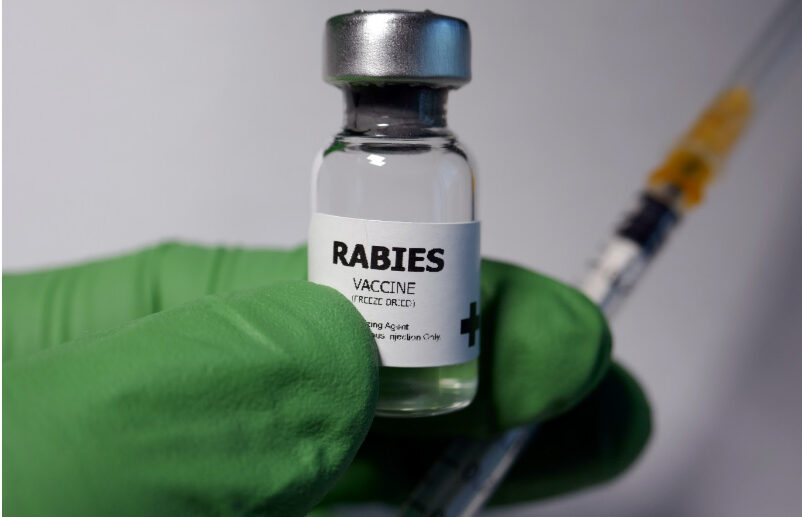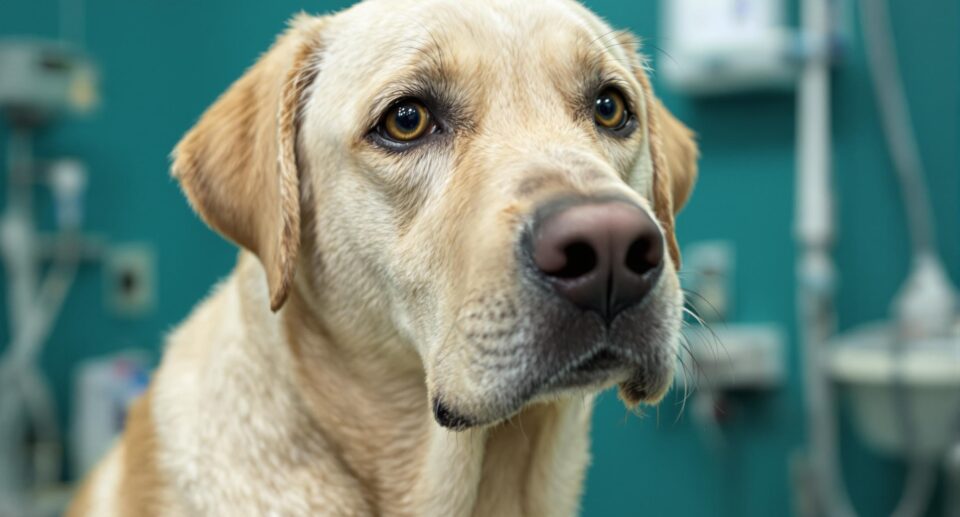Can A Vaccinated Dog Get Rabies?

September 28th is World Rabies Day, a day of international awareness of a viral disease that fatally attacks the nervous system.
Across the world, rabies takes the lives of over 50,000 humans annually. Though the disease is rare in the United States due to widespread vaccination, it still affects around 60 dogs and 250 cats each year. Though most cats and dogs have received their rabies vaccine, pet parents should know the risks and what to do in the event of potential exposure.
What Exactly Is Rabies?
Rabies is a virus that’s transmitted through the bite of an infected animal. It rapidly attacks the nervous system, causing unusual behaviors like:
- Hydrophobia or fear of water
- Excessive saliva production and inability to swallow, presenting as drooling or “foaming at the mouth”
- Aggression
- Daytime wakefulness in nocturnal animals
- Unusual friendliness in wild animals
- Paralysis
- Seizures
Rabies is 100% fatal, killing those infected two to ten days after first onset of symptoms.
How Do Pets Get Rabies?
All warm-blood mammals can carry rabies. Bats, foxes, skunks, deer, and raccoons are some of the most common vectors of the virus. Stray cats and dogs, too, can pass rabies to pets. It’s not common, but possible, in livestock. Small mammals like mice, rats, and rabbits rarely get rabies. It’s also rare in opposums, possibly because of their low body temperature.
Rabies is primarily spread through direct contact. The virus can enter broken skin via saliva, so it’s most common for it to be transmitted through a bite. Your cat or dog could contract rabies by hunting, fighting, or killing infected wildlife.
Your pet may have contracted rabies even if they do not have a visible bite wound. Bite wounds can be small and hard to detect. It’s also possible for pets to contract rabies by consuming tissue from the brain or spinal cord of the infected animal.
Can A Vaccinated Pet Get Rabies?
Rabies vaccinations are required by law for cats and dogs in most regions. Your pet will have likely had their first vaccine when they were a puppy or kitten, a second rabies vaccine a year later, and a booster vaccines every three years.
It is unlikely, but yes, it is possible, for your pet to contract rabies even if they have had their vaccine. Cases of rabies in vaccinated pets have been recorded, and while it’s more likely in pets that are overdue for their booster, there have been cases in which the pet was up-to-date.
What Should I Do If My Pet May Have Been Exposed to Rabies?
Any time your cat or dog has had a run-in with a wild animal, there’s a chance that they may have been exposed to rabies. Infected animals can have varying presentation of symptoms, from lethargic to aggressive to friendly.
It’s possible to have the wild animal tested for rabies, but it will have to be euthanized if not already dead. You can contact your veterinarian or local department of public health for a referral to a laboratory that can process an animal for rabies testing.
If you’re unable to have the animal tested for rabies, your pet will need a post-exposure vaccination to ensure they do not contract the deadly infection.
Contact your veterinarian and your local public health department for further instruction. Depending on your pet’s vaccine status, they may be required to quarantine, either in your home or at a department-approved facility.
Can My Pet Contract Rabies from the Vaccine?
The rabies vaccine contains small amounts of an inactivated, or dead, form of the virus. It is impossible for pets to contract rabies from the vaccine.
Why Should My Pet Be Vaccinated After Rabies Exposure?
The rabies virus has a relatively long incubation period. It can take anywhere from 14 days to four months for the virus to enter the nervous system and cause initial symptoms. Once symptoms start to show, the virus is untreatable and 100% fatal.
Whether your pet is current rabies vaccine records or not, they will likely receive a post-exposure vaccine. This vaccine introduces the killed virus to your pet’s bloodstream so their body will immediately begin to produce antibodies to eliminate the live virus, if any, before it can cause illness.





